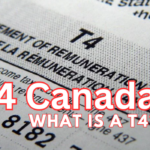Get the latest facts and updates regarding the IRS Tax Credit Schedule 2024 July-December Payment Schedule and Amount. The amount an individual owes the government is reduced through the IRS Tax Credits. The tax credit is designed to lower the liability on overall tax on the basis of an individual’s income. The article will provide a brief description of the schedule of IRS Tax Credits.
IRS Tax Credit Schedule July-December
The calendar of the IRS Tax Credit is segmented into quarters that are first quarter, second quarter, third quarter, and fourth quarter. The first quarter includes January, February, and March. The second quarter includes April, May, and June. The third quarter includes July, August, and September. The fourth quarter includes October, November, and December.
The schedule assists in the organization of due dates for payments and tax filings. The tax calendar of employers is followed by General taxpayers whereas the fiscal taxpayers have to adjust the schedule on the basis of requirements of specific fiscal year. The IRS tax calendar includes various taxes such as Corporation Tax, Foreign Partnership Tax, Estate Tax, and Gift Tax.
| Important Links |
IRS Tax Credit Payment Dates
The adjustment in the calendar to file the income tax return for the fiscal year is designed to approach assistance to taxpayers in filing the return. The effective utilization of tax credits can contribute to managing financial planning and tax liabilities.

The significant events in the tax calendar 2023 will be marked by the tax deadlines in the second part of 2024. Here, certain important tax credit dates are mentioned:
- The extended due date for 2023 Domestic Trust, Estate, and Partnership Tax Returns is 17 July 2024
- The third estimated due date of tax payment is 16 September 2024
- The extended deadline for income tax return 2023 is 15 October 2024.
- The fourth estimated due date of tax payment is 15 January 2025.
The online filing of tax returns resulted in a refund within 3 weeks. It might take around 6 weeks if an individual opts for direct deposits. These are expected dates, for confirmed payment dates, the viewers can refer the official governmental websites.
IRS Tax Credit Amount
An individual can claim the tax credits if his or her owed tax exceeds filed tax returns. Both standard and itemized deductions provide respective benefits. If a fixed amount is deducted from an individual’s income, it is a standard deduction. On the contrary, if the amount is deducted from specific expenses such as medical bills, it is an itemized deduction.
The credits and deduction amounts are as follows:
- The general deduction – $1.22 million is reduced to $3.02 million with a limit of expense.
- The property services – Up to $1.29 million, the deduction limit increased with a limit of expense up to $3.22 million.
In addition, certain common deductible expenses include capital losses, alimony payments, capital losses, disaster losses, and business expenses. The visitors must visit the official website of the government for the latest updates.
IRS Tax Credit Eligibility
This segment will discuss the eligibility norms of IRS Tax Credit:
- The claimants must have citizenship in the US.
- The annual income of the recipient must be as per the prescription in the IRS guidelines.
- The recipient who is recently divorced, married, single, unemployed, or experienced can file the tax credits.
The individuals must note that the eligibility criteria might be changed, thus, for the latest updates, keep an eye on the official web portal of the US government or IRS.
| Important Links |
All We Know
If the credits exceed the tax liabilities, then the credits are refunded under the Refundable Tax Credit Program. This, in turn maximizes the tax benefits of taxpayers. The taxpayers must consult the tax advisor or tax counselor to ensure the maximization of tax credits during the filing of federal taxes. An individual can effectively lessen the overall tax burden of the year through the advantages of eligible tax credits, deductions, and exemptions.
Through tax credits, the recipients can receive various benefits, including alleviation of tax burden, improvement in financial conditions, providing financial stability, and potentially enhancing household well-being. Along with this, it assists the citizens in maintaining living standards and managing essential expenses.
The applicants must submit the tax returns as early as possible and keep their personal information and bank details regularly. The individuals must keep an eye on the official web page of the IRS or the US government for current information. Furthermore, to read IRS Tax Credits- related articles, frequently pay a visit to this web page.





